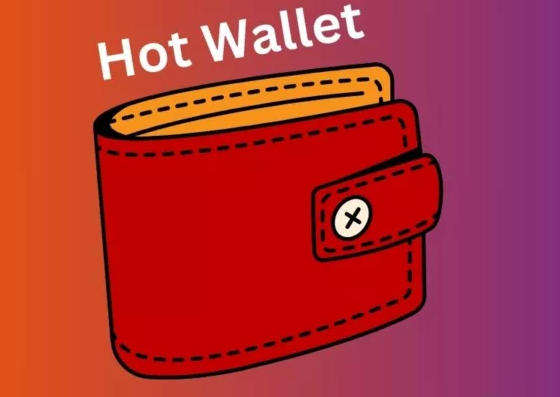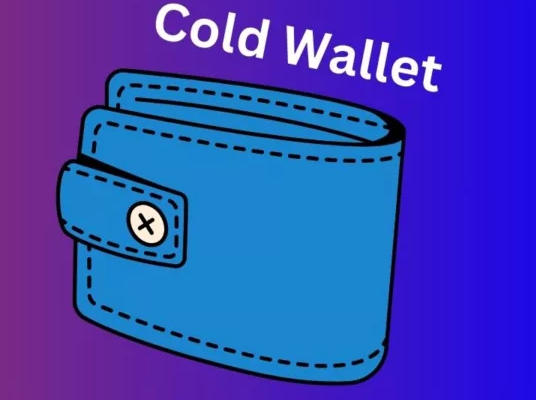In this article, I will discuss the Crypto Hot Wallet vs Cold Wallet. You will see how cold wallets offer offline security ideal for long-term storage while hot wallets offer convenience and quick access for daily transactions.
By weighing the advantages and disadvantages of each, you will be able to safeguard and access your cryptocurrency as you wish.
What is a Crypto Hot Wallet?
A crypto hot wallet refers to an online digital wallet which one can use to store and manage their cryptocurrency assets. It is comprised of mobile applications, desktop applications, and online wallets.

Frequent traders or individuals who have only a small amount of cryptocurrency prefer using hot wallets because of their ability to provide instant transactions.
Their main drawback is the fact that they are more susceptible to hacking, phishing, and the installation of malware. Regardless of these vulnerabilities, hot wallets continue to be the most favored wallets because of their accessibility and ease of use.
What is a Crypto Cold Wallet?
A crypto cold wallet is an offline wallet that is used to store cryptocurrencies securely. Storing cryptocurrencies offline minimizes the risk of hacking. This kind of wallet is designed for long-term storage of large crypto holdings.

Examples include hardware wallets and paper wallets. Cold wallets provide formidable protection for crypto assets against phishing and malware.
Investors and corporations prioritizing safety and protection against online threats appreciate these wallets even if they are less convenient for frequent transactions. Cold wallets, however, require proper backup and must be stored in a safe physical location.
Hot Wallet vs Cold Wallet: Key Differences
| Feature | Hot Wallet | Cold Wallet |
|---|---|---|
| Connectivity | Online, connected to the internet | Offline, not connected to the internet |
| Security | More vulnerable to hacks and phishing | Highly secure, protected from online threats |
| Accessibility | Easy and quick access for transactions | Slower access, requires physical device or backup |
| Best Use | Daily trading and small amounts of crypto | Long-term storage of large crypto holdings |
| Examples | Mobile wallets, desktop wallets, web wallets | Hardware wallets, paper wallets |
| Cost | Usually free or low-cost | May involve purchasing hardware, e.g., Ledger, Trezor |
| Convenience | High convenience for frequent use | Less convenient for everyday transactions |
How to Choose the Right Wallet for You
The type of cryptocurrency wallet you choose should be based on your trading behavior, your security preferences, and your holdings. A hot wallet is most useful for frequent traders or those who need immediate access since it is easily accessible and facilitates quick trading.
For infrequent traders, cold wallets offer superior security for large amounts stored long term because the assets are kept offline, beyond the reach of hacks. A combination of both is most effective for many investors: hot wallets for daily transactions and cold wallets for savings. This allows for quick access while maintaining strong protection.
Security Tips for Both Wallet Types
Hot Wallet Security Tips
- Ensure to have robust and distinctive passwords for every wallet account.
- Activate two-step verification for additional layer security.
- Maintain your device and wallet programs.
- Do not use public Wi-Fi when accessing your wallet.
- Consistently check for unusual transactions.
Cold Wallet Security Tips
- Always keep your hardware or paper wallets in a secret and restricted place.
- Always store additional copies of your recovery phrases in seperate anonymous places.
- Do not give out wallet information to anyone.
- Check your hardware wallet periodically for signs of wear.
- Storing in a safe or lock box adds a layer of security.
Risk & Considerations
Risks of Hot Wallets
- Accessibility increases risk of phishing, malware, and hacking
- Fund losses if login details are compromised
- Relies heavily on internet and device safety
Risks of Cold Wallets
- Physically misplaced, stolen, or damaged wallets
- Forgotten recovery seed phrases can lead to permanent loss
- Initial investment is higher for hardware wallets, increasing overall cost
Wallet Selection Considerations
- Transaction Activity: routine needs and access favor hot wallets, and long-term holdings favor cold wallets
- Security expectations: balance between ease of access and protection
- Backup recovery plans: access needs to both custody and securities should be safeguarded
- Wallet combination: both hot and cold wallets can optimize security and combine ease of use
Pros & Cons Hot Wallet vs Cold Wallet
Pros & Cons Hot Wallet
Pros:
- Accessible for transactions quickly and easily
- Suitable for daily trading and small quantities of cryptocurrency
- Intuitive for novice users
- Free or low-cost in most cases
- Allows storage of several cryptocurrencies in one application
Cons:
- Prone to cyber assaults as well as phishing and malware attacks
- Not as safe when it comes to holding large quantities of cryptocurrency
- Must have uninterrupted internet connection
- Relies heavily on the device’s cyber defenses as well as software updates
- Risk of losing account balance in the case account details are illegally altered
Pros & Cons Cold Wallet
Pros:
- Secure from online attacks and breaches due to complete offline storage
- Best for long-term storage of significant amounts of cryptocurrency
- Protected from phishing attacks and malware infections
- Control over the private keys is granted
- Suitable for investors primarily seeking peace of mind security
Cons:
- Not ideal for regular transactions
- May involve some initial investment to purchase the hardware wallets
- Must be securely stored to avoid physical loss, theft, or damage
- Careful storage measures for the recovery seed phrases still need to be taken
- More complicated for beginners to set up
Conclusion
The decision between a hot crypto wallet and a cold wallet is entirely based on your level of convenience or your concern for security. Hot wallets are best for small amounts and sparring trading due to their real time access and ease of use.
In contrast, cold wallets are best for long term massive amounts due to their off line storage. To attain a balance between accessibility and safety, a combination of both is usually preferred. Following all security measures and understanding your own priorities will make your crypto both secure and accessible.
FAQ
What is the main difference between hot and cold wallets?
Hot wallets are connected to the internet, offering convenience but higher hacking risk. Cold wallets are offline, providing stronger security for long-term storage.
Can I use both hot and cold wallets together?
Yes, many investors use a hot wallet for daily transactions and a cold wallet for long-term holdings.
Are hot wallets free to use?
Most hot wallets are free or low-cost, though some premium features may require payment.








